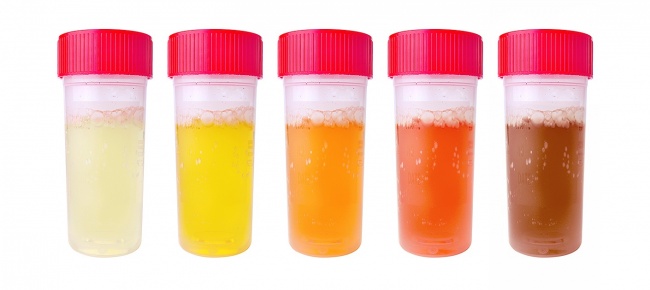4 – Changes in Urine:

The kidneys are responsible for eliminating wastes through urine, any Changes in the frequency, odor, color and appearance of urine is sign of kidney failure, common types of changes include:
The need to urinate more often:
If you feel the need to urinate more often, especially at night, this can be a sign of kidney disease. (Anywhere between 4 to 10 times a day is considered to be normal.) When the kidneys filters are damaged, it can cause an increase in the urge to urinate. Your doctor should be able to determine the difference by doing blood and urine tests and sometimes x-rays. Because this can also be a symptom of a bladder, urinary infection or enlarged prostate in men.
Blood in Urine:
Seeing blood in your urine can be alarming. Healthy kidneys typically keep the blood cells in the body when filtering wastes from the blood to create urine, but when the kidney’s filters have been damaged, these blood cells can start to “leak” out into the urine. In addition to signaling kidney disease, blood in the urine can be indicative of tumors, kidney stones or an infection. blood in urine (hematuria) can indicate a serious disorder.
Foamy Urine:
Foamy urine is more likely to be a sign of disease if it happens often or it gets worse over time. If you notice that your urine is foamy it can be a sign of kidney problems. Excessive bubbles in the urine – especially those that require you to flush several times before they go away—indicate protein in the urine, damaged kidneys can allow too much protein to leak into your urine. This foam may look like the foam you see when scrambling eggs, as the common protein found in urine, albumin, is the same protein that is found in eggs.



